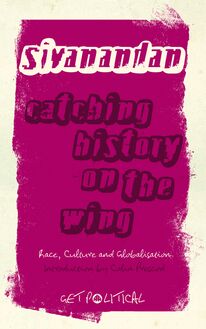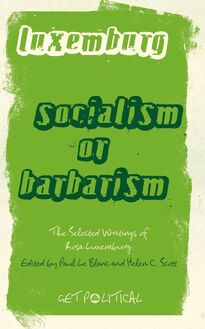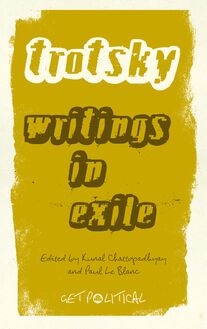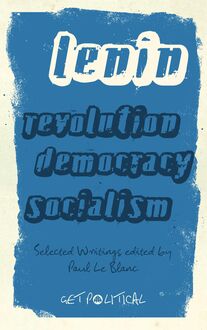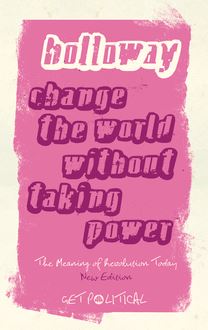Staying Power , livre ebook
381
pages
English
Ebooks
2010
Vous pourrez modifier la taille du texte de cet ouvrage
Obtenez un accès à la bibliothèque pour le consulter en ligne En savoir plus
Découvre YouScribe et accède à tout notre catalogue !
Découvre YouScribe et accède à tout notre catalogue !
381
pages
English
Ebooks
2010
Vous pourrez modifier la taille du texte de cet ouvrage
Obtenez un accès à la bibliothèque pour le consulter en ligne En savoir plus
Publié par
Date de parution
06 septembre 2010
EAN13
9781783714636
Langue
English
Poids de l'ouvrage
2 Mo
Introduction by Paul Gilroy
1. 'Those kind of people'
2. Necessary Implements
3. Britain's Slave Ports
4. The Black Community Takes Shape
5. Eighteenth Century Voices
6. Slavery & the Law
7. The Rise of English Racism
8. Up from Slavery
9. Challenges to Empire
10. Under Attack
11. The Settlers
12. The New Generation
Publié par
Date de parution
06 septembre 2010
EAN13
9781783714636
Langue
English
Poids de l'ouvrage
2 Mo
Staying Power
Peter Fryer was born in Yorkshire in 1927. His interest in black history began in 1948, when as a reporter he was sent to cover the arrival at Tilbury of Jamaican workers on the Empire Windrush . He has written several books, including Hungarian Tragedy ; Mrs Grundy: Studies in English Prudery ; and The Birth Controllers . He died on 31 October 2006.
www.plutobooks.com 1
marx engels
The Communist Manifesto
Introduction by David Harvey 9780745328461 2
lenin
Revolution, Democracy, Socialism
Edited by Paul Le Blanc 9780745327600 3
Sivanandan
Catching History On The Wing
Foreword by Colin Prescod 9780745328348 4
anon
Black Skin, White Masks
Forewords by Homi K. Bhabha and Ziauddin Sardar 9780745328485 5
Shahak
Jewish History, Jewish Religion
Forewords by Pappe/Mezvinsky/Said/Vidal 9780745328409 6
boal
Theatre of the Oppressed
9780745328386 7
ryer
Staying Power
Introduction by Paul Gilroy 9780745330723 8
holloway
Change the World Without Taking Power
9780745329185 9
luxemburg
Socialism or Barbarism
Edited by Paul Le Blanc and Helen C. Scott 9780745329888
staying
power
The History of Black People in Britain
PETER FRYER
Introduction by Paul Gilroy
This edition first published 2010 by Pluto Press 345 Archway Road, London N6 5AA and 175 Fifth Avenue, New York, NY 10010
www.plutobooks.com
Distributed in the United States of America exclusively by Palgrave Macmillan, a division of St Martin’s Press LLC, 175 Fifth Avenue, New York, NY 10010
Copyright © The Estate of Peter Fryer 1984, 2010
British Library Cataloguing in Publication Data A catalogue record for this book is available from the British Library
ISBN 978 0 7453 3073 0 Hardback ISBN 978 0 7453 3072 3 Paperback ISBN 978 1 7837 1462 9 PDF ISBN 978 1 7837 1463 6 EPUB ISBN 978 1 7837 1464 3 Kindle
Library of Congress Cataloging in Publication Data applied for
This book is printed on paper suitable for recycling and made from fully managed and sustained forest sources. Logging, pulping and manufacturing processes are expected to conform to the environmental standards of the country of origin.
10 9 8 7 6 5 4 3 2 1
Designed and produced for Pluto Press by Chase Publishing Services Ltd, 33 Livonia Road, Sidmouth, EX10 9JB, England Typeset from disk by Stanford DTP Services, Northampton, England Printed and bound in the European Union by CPI Antony Rowe, Chippenham and Eastbourne
To Emily, Frances, and James
Contents
Introduction
Preface
1 .
‘Those kinde of people’
Africans in Britannia
Africans in Scotland
Africans in England
Queen Elizabeth’s response
A Khoi-khoin in England
2 .
‘Necessary Implements’
Sugar and slavery
Chattels and status symbols
Pageant performers
3 .
Britain’s slave ports
A profitable business
The slave-merchants of Bristol and Liverpool
London as a slave port: the West India lobby
Competition
Quality control
Black people in the slave ports
The slave ports’ self-image
4 .
The black community takes shape
Early black organizations
Black people at work
Asians in Britain
Black musicians
5 .
Eighteenth-century voices
Ukawsaw Gronniosaw
Phillis Wheatley
Ignatius Sancho
Ottobah Cugoano
Olaudah Equiano
6 .
Slavery and the law
The legal pendulum
Granville Sharp challenges the slave-owners
The Somerset case
Slavery and the Scottish law
Mass murder on the high seas
The Grace Jones case
7 .
The rise of English racism
Race prejudice and racism
The demonology of race
Plantocracy racism
Pseudo-scientific racism
8 .
Up from slavery
The black poor
Resistance and self-emancipation
Abolitionists and radicals
The black radicals
The everyday struggle, 1787-1833
9 .
Challenges to empire
William Cuffay
Mary Seacole
Ira Aldridge
Samuel Coleridge-Taylor
Challenges from Asia
The rise of Pan-Africanism
Black workers and soldiers
10 .
Under attack
Racism as riot: 1919
Claude McKay and the ‘Horror on the Rhine’
Defence and counter-attack
Racism as colour bar
Racism as riot: 1948
11 .
The settlers
The post-war immigration
Racism as riot: 1958
Surrender to racism
12 .
The new generation
Born at a disadvantage
Police against black people
Resistance and rebellion
Appendixes
A .
Letter from Olaudah Equiano to Thomas Hardy, 1792
B .
Letter from William Davidson to Sarah Davidson, 1820
C .
Letter from Robert Wedderburn to Francis Place, 1831
D .
William Cuffay’s speech from the dock, 1848
E .
J.R. Archer’s presidential address to the inaugural meeting of the African Progress Union, 1918
F .
Birmingham, the metal industries, and the slave trade
G .
Eighteenth-century biographies
H .
Visitors, 1832-1919
I .
Prize-fighters, 1791-1902
Notes
Suggestions for further reading
Index
Introduction
Paul Gilroy
Staying Power is a special book. It has to be recognized as something of a historical phenomenon in its own right. After the original publication in 1984, access to the history of black settlement in Britain would never be the same. Peter Fryer’s unique breadth, ambition and political integrity established the basic orientation point for historical scholarship on Britain’s black communities. Its honesty, clarity, depth and acuity made that insurgent historical narrative available in usable form to a wide and eager readership. Amidst the political and economic debris of the early 1980s riots, Staying Power answered the widespread hunger for a historical narrative which could anchor hopes for more just and more humane treatment of Britain’s racialized minorities. In retrospect, it also signalled a decisive step away from the influential African American scripts of race and politics which had been so important in the preceding phase of struggles when ideas of civil rights and black power had enjoyed a global impact.
By showing where the labour and imagination of diverse black people had contributed to the making and re-making of Britain, shaping its radical traditions, social institutions and political habits, Staying Power answered the nationalism and racism that obstructed the paths to authentic inclusion and belonging. In the spirit of that now distant period, the history that Peter Fryer excavated with such evident care was a politically motivated one. It synthesized the life experience of several black settler populations: pre and post 1945. If that appears to be a simpler task today, its obviousness is a measure of his achievement. His book also added substantively to what we knew about our past. The main text, which flattened as it drew closer to the present, consolidated a constellation of key personalities, problems and events. And then, there was another whole world in the book’s challenging footnotes and appendices which had unearthed enough material to fuel a library of new monographs. A smaller, companion volume which related Britain’s internal history of conflict around race to an account of its colonial crimes appeared a few years later.
Fryer’s intervention was no dry scholastic exercise. His approach was rigorous and detailed but never idly contemplative, disinterested or dispassionate. After all, its courageous author was a libertarian leftist whose political sensibilities had been shaped by reporting on the post-45 experience of Britain’s postcolonial settlers from the Caribbean and then refined by the world-historic 1956 Hungarian uprising against Soviet domination. He would not object to being called an antiracist though it is only fair to add that his humane and worldly, revolutionary wisdom could not be contained under so narrow a heading. Staying Power seems to have been a labour of that cosmopolitan, revolutionary love–an ethically infused effort designed to articulate its author’s hopes for an internationalist variety of class politics in which the damage done by racism had been thoughtfully acknowledged and then repaired – with an eye on the future. This was no trivial undertaking and Fryer showed that it would only be possible if the colonial and imperial history of Britain could be completely re-worked on a different scale. Staying Power was the cornerstone of that reparative project. If Britain could face up to the blood-stained past that had made it the world’s dominant power and work that history through, it could become a different, better place. More than that, the struggle against the racism which had grown from slavery could then be recognized as a strategic battle, fundamental to the health of the country’s ailing democracy.
For Fryer – as for Eric Williams, whose amiable ghost is present in this text – racism was determined by the imperatives of exploitation. Fryer moved beyond Williams with the suggestion that there was no significant sense in which the problems created by racial hierarchy and division could not be solved by the overthrow of capitalism. These views are less fashionable today than they were thirty years ago. But it would be wrong to see Fryer as a prisoner of deterministic thinking. His emphasis falls repeatedly upon the world-changing agency of brave people who would not accept their own dehumanization or the reduction of others to infrahumanity.
It is significant that, James Walvin aside, the path-breaking authors who laboured alongside Fryer in the British Library and at Colindale, trawling the archives for a counter-history that could guide and strengthen the emergent voices of black British political culture were, like him, not academics. Unencumbered by banal, scholastic considerations, Rozina Visram, 1 Ron Ramdin 2 and the others formed a vibrant, liberationist cohort intent on offering this potent history to a
